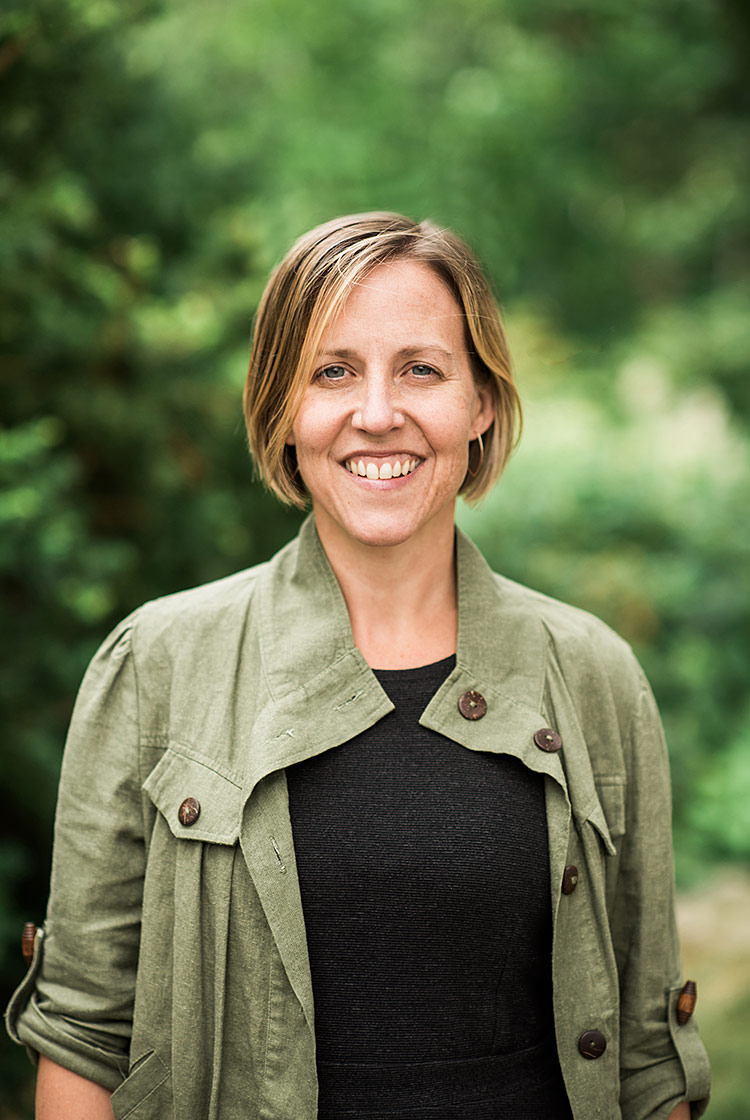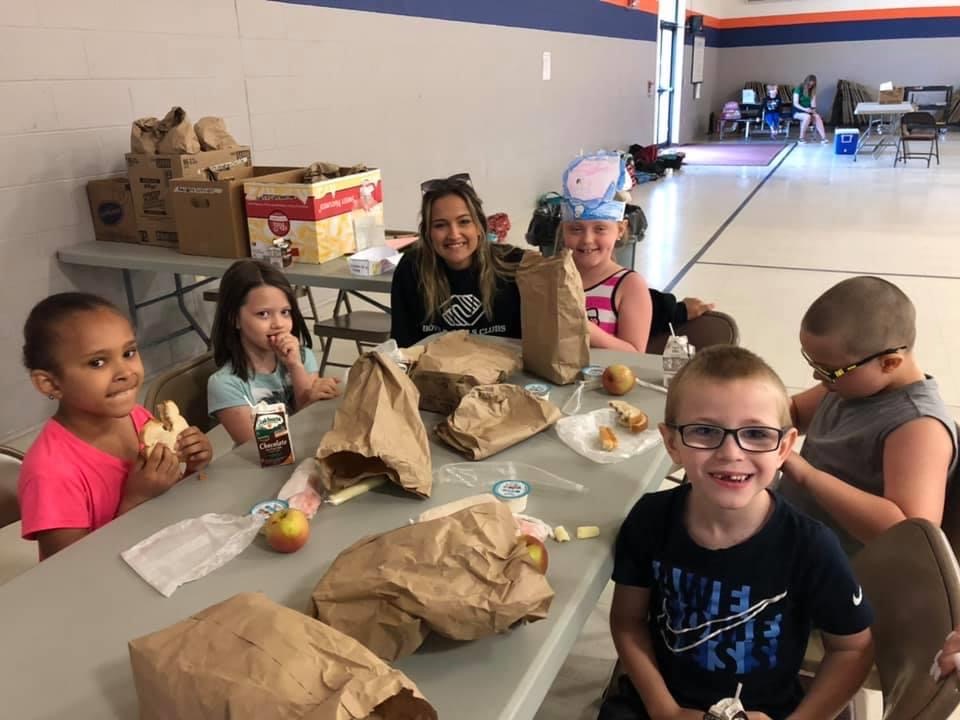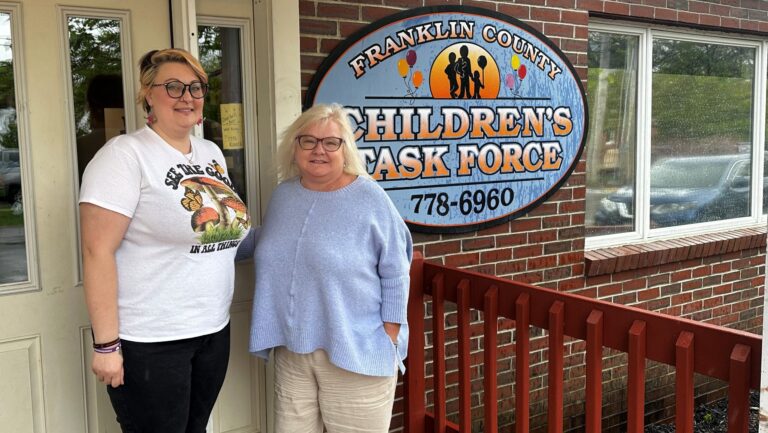Foundation partnerships to prevent and mitigate ACEs offer possible insights for serving children and families at an especially stressful time.
By Senior Program Associate Jennifer Beck, PhD.

The COVID-19 pandemic has underscored the importance of addressing childhood adversity – not only because the pandemic has introduced unprecedented levels of stress to millions of children and their families, but because young children are especially vulnerable to the impact that stress has on their developing brains.
The John T. Gorman Foundation has long prioritized the connection between early development and future outcomes. We believe advancing the emotional well-being and academic success of Maine’s youngest children is one of the best things we can do to ensure their long-term success as adults.
As children and families embark on an uncertain school year, it feels timely to share some of what is known about the impacts of childhood adversity and note some effective strategies for making a difference that are being advanced among groups across Maine.
The Negative Effects of ACEs and What We Can Do About Them
Throughout the years, the Foundation has promoted the importance of taking a comprehensive approach to preventing and mitigating an all-too-common type of adversity known as Adverse Childhood Experiences (ACEs).
The term “ACEs” originated in a groundbreaking research study conducted in the mid-1990s by the Centers for Disease Control and the Kaiser Permanente health care organization in California. In that study, ACEs referred to ten specific kinds of adversity that children faced in the home environment—various forms of physical and emotional abuse, neglect, and household dysfunction, including parental mental illness, substance use disorder, domestic violence, and incarceration. Analyzing 17,000 adults who were medically insured, well-educated, and mostly middle-class, the study sought to determine whether there was a correlation between the number of ACEs an individual had experienced and their risk for chronic disease. The original study, and decades of research since, has led to the following conclusions:
- ACEs are common: more than two-thirds of the population report experiencing one ACE, and nearly a quarter have experienced three or more.
- There is a powerful and persistent correlation between the accumulation of negative childhood experiences and lifelong negative health and social outcomes.
One explanation for the relationship between ACEs and lifelong negative outcomes is the role of toxic stress. Research shows that chronic or acute exposure to stress – the type that accompanies ACEs – results in unhealthy levels of cortisol being released into the bloodstream. Such a response is especially detrimental to children because it can harm their still-developing nervous, endocrine, and immune systems. ACEs and toxic stress, for instance, can have effects on a person’s decision-making, emotion regulation, and learning.
Children growing up with exposure to toxic stress and multiple ACEs can struggle to learn, are less likely to graduate, and are at increased risk of becoming involved in the criminal justice system. They may have difficulty forming healthy and stable relationships, and as adults they are more likely to experience unstable employment trajectories and mental health challenges.
Importantly, there are ways to prevent ACEs and mitigate the effects of toxic stress. The most effective approaches are grounded in three principles: reducing sources of stress for children and families; building nurturing and responsive relationships; and strengthening core life skills such as planning, focus, and self-control.
Evidence-Based Approaches Guide Foundation Investments in ACEs
Because ACEs and toxic stress so negatively impact our priority areas of young children, older youth, and families, finding ways to address them in Maine is a critical issue for the Foundation.
Centered on the principles mentioned previously, the Foundation has made significant investments in the prevention of ACEs and mitigation of toxic stress. As with much of the Foundation’s work, our approach to addressing ACEs is prevention-oriented, comprehensive, and multi-generational.
Below are three strategies the Foundation has invested in to prevent exposure to ACEs for Maine’s youngest and help them build the resilience they need to counter those experiences. For each strategy, we also share examples of our partnerships.
Strategy: Strengthen Economic Supports for Families
Parents facing financial hardship have fewer resources and face difficult choices when trying to balance work and family responsibilities. Addressing the economic underpinnings of ACEs is critical to achieving lasting effects. Across the years, the Foundation has supported several notable efforts to bring greater economic security to low-income families.
- With Foundation funding, BangorHousing launched an Enhanced Family Self-Sufficiency Program that successfully helped public housing residents build their savings, raise their incomes, and achieve personal goals. The model is now being replicated in other parts of the state.
- In Lewiston, a new group of stakeholders have formed Strengthen L-A and are collaborating to match those in need of work experience with employers and help low-wage workers access training they need for higher-paying positions.
- With the help of New Ventures Maine, CA$H Maine coalitions are working to deliver financial education and coaching to low-income families across Maine, helping them to reduce their debt and grow their assets.
Strategy: Ensure a Strong Start for Children
Child development takes place within the context of relationships and environments. The quality of a child’s early relationships with others plays a significant role in healthy brain development and, correspondingly, in the development of emotional, social, and behavioral capacities.
Home visitation and high-quality early child care—especially programs that engage and partner with parents—help children build a strong foundation for future learning and opportunity by improving their social, emotional and cognitive development. For example:
- Maine General Medical Center has implemented an evidence-based model of home coaching to help mothers who are dealing with substance use disorder develop deeper connections with their newborn children. The nurturing responses that result from the coaching can bring positive health impacts to both mother and child.
- Starting Strong is a network of early childhood educators, parents, service providers and others working together to ensure all children in Portland establish the building blocks for lifetime learning. Its goals are helping children enter kindergarten ready to learn and to reach reading proficiency by the end of third grade.
- The Foundation has also provided funding to support the Maine Children’s Cabinet, a cross section of five state agencies working collaboratively to align and strengthen programs and policies for young children and at-risk youth.
Strategy: Connect Youth to Caring Adults
Adolescence and young adulthood are developmental periods ripe with risk and opportunity. A young person’s experiences during this time will have a profound impact on their life trajectory. Between the ages of 14 and 25, the human brain undergoes significant changes, especially in ways related to emotion regulation, motivation and relationships. Because of the extensive changes occurring in the brain during this developmental period, caring adults have a critical window of opportunity to help adolescents navigate this process. Relationships with caring adults and peers have been found to help promote neurobiological healing in the face of trauma, toxic stress, and ACEs. We’ve been pleased to support several efforts seeking to advance these critical relationships. For example:
- The Oxford County Resiliency Project has worked across multiple school districts to support the implementation of trauma-informed and resilience-building practices and policies. Its primary goal is for students to feel that they are valued in their community.
- The Mitchell Institute has created the Promise Scholars program where students coming to college from extremely difficult circumstances receive financial assistance and other personal support to help them clear obstacles to graduation.
- Through advocacy and direct investments, the Foundation has worked with various partners to promote the need for a statewide continuum of care where vulnerable Maine youth – including those who are homeless, in foster care, or involved in the juvenile justice system – have ready access to services and opportunities to form productive relationships with caring adults.
Conclusion
Adverse Childhood Experiences and toxic stress can lead to serious and far-reaching consequences across the lifespan. But with the right response, they can be prevented and mitigated. The uncertainty and challenges brought on by the COVID pandemic only deepen the importance of ensuring that children, youth and families in Maine receive the supports and experiences they need to thrive and be resilient in the face of adversity. The Foundation is committed to continue working with others to advance this important objective.



